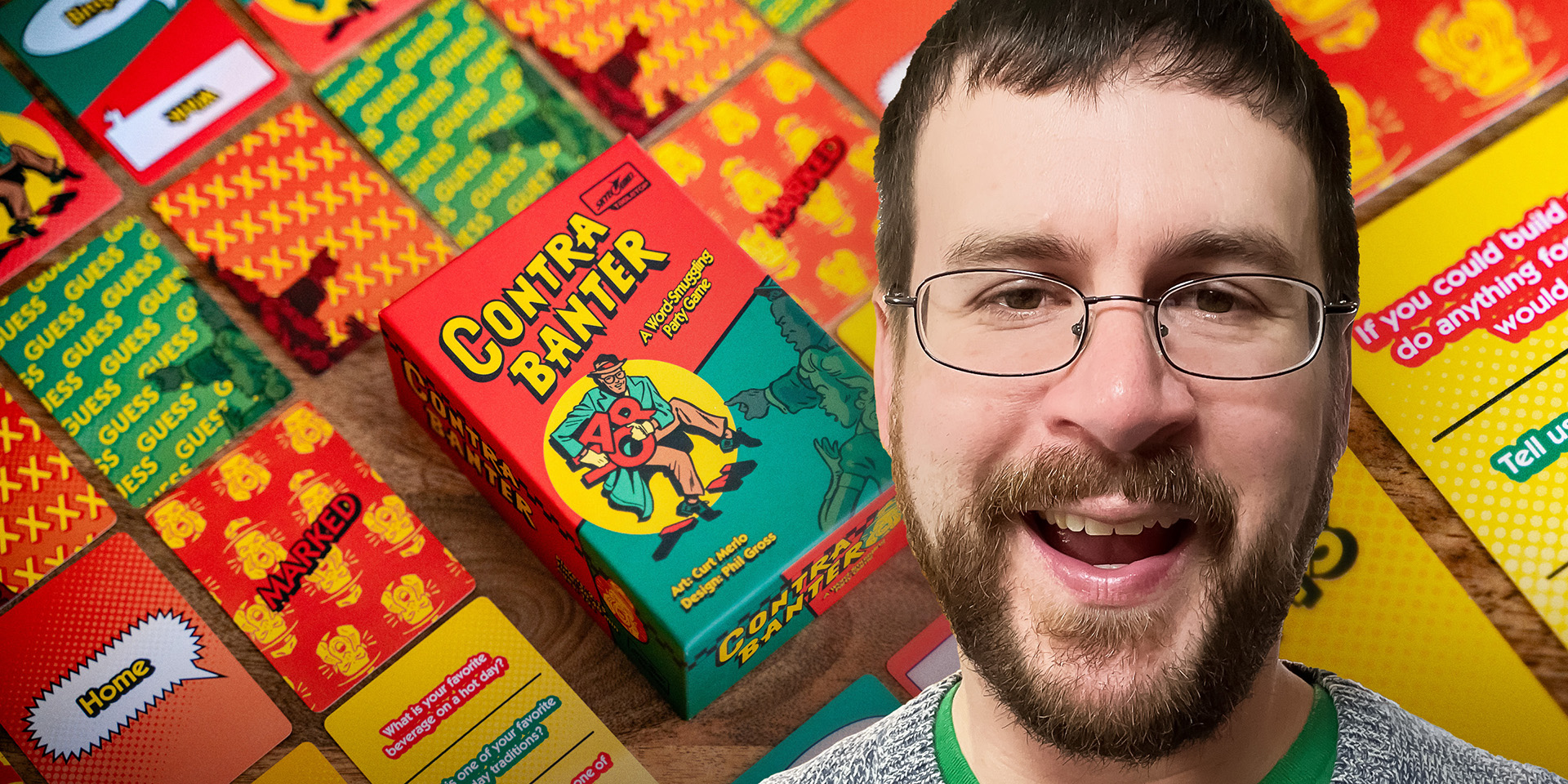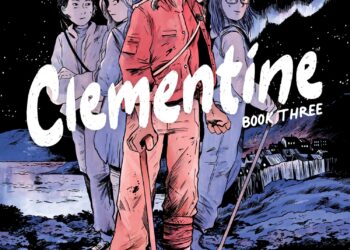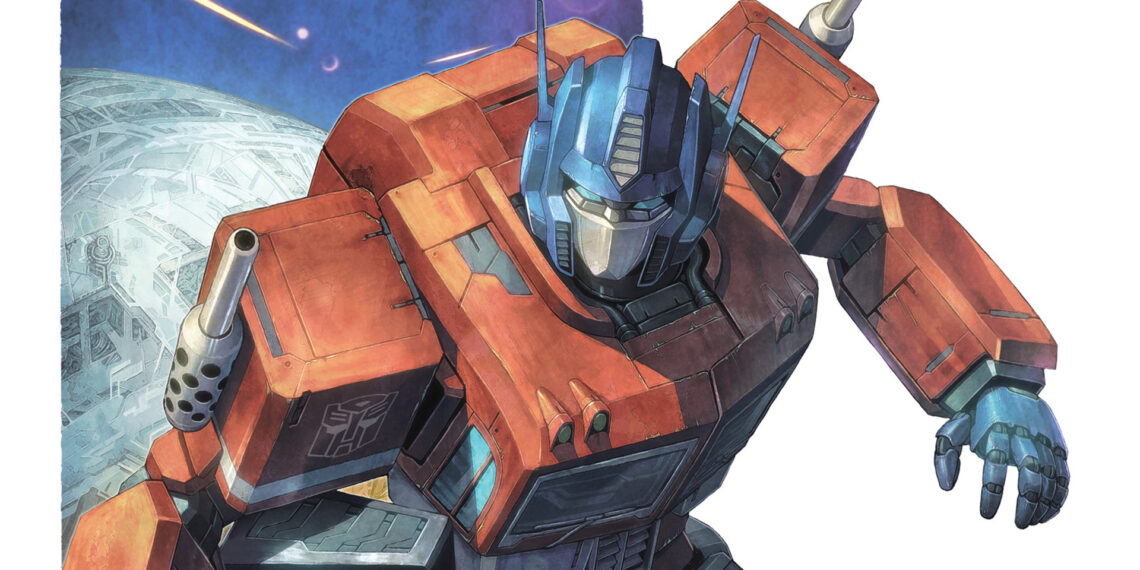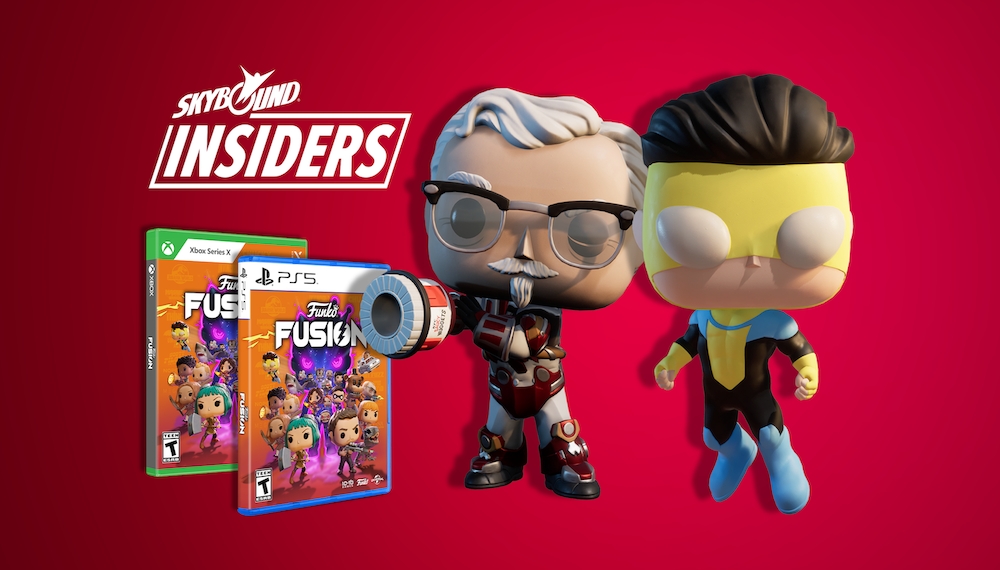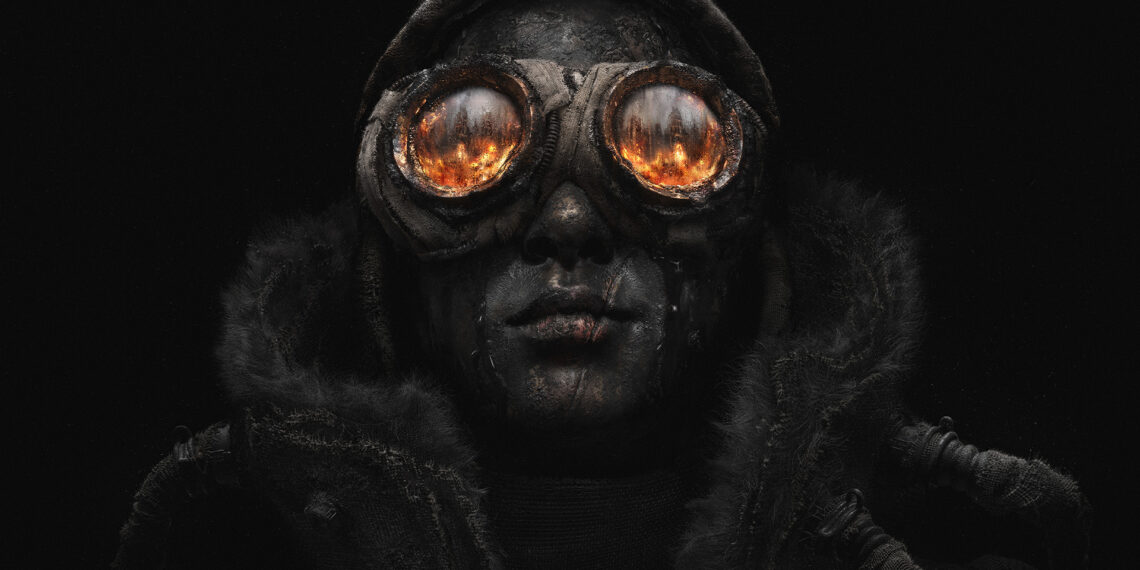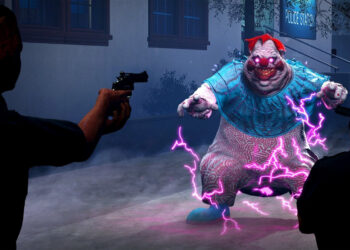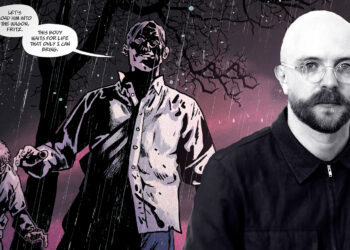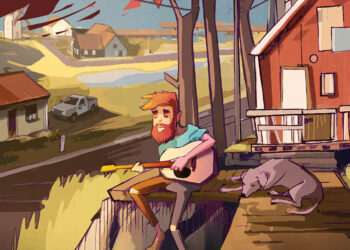Skybound’s latest tabletop game Contrabanter is already winning rave reviews from critics and discerning audiences. A word-smuggling game where players work as a team to sneak secret words into a conversation, it’s now available in the Skybound Store. To celebrate its release this month, we chatted with the designer of Contrabanter, Philip Gross. Here’s what Philip he had to say about your next party game obsession…
How would you describe the premise of Contrabanter?
Contrabanter is a party game for 2 to 15 players. It’s a conversational game in which each team has some secret words, and they’re trying to sneak them past their opponents multiple times in the conversation without the opponents guessing those words.
What was the game’s genesis?
I had an epiphany moment. I was reading about a totally different game. Arcs by Cole Wehrle is about to come out, and I thought, “Hey, there ought to be a social deduction word game.” Then my brain ended up going down this very simple party game route. As it turns out, there’s a couple others that have done this kind of thing before, but I still haven’t played them.
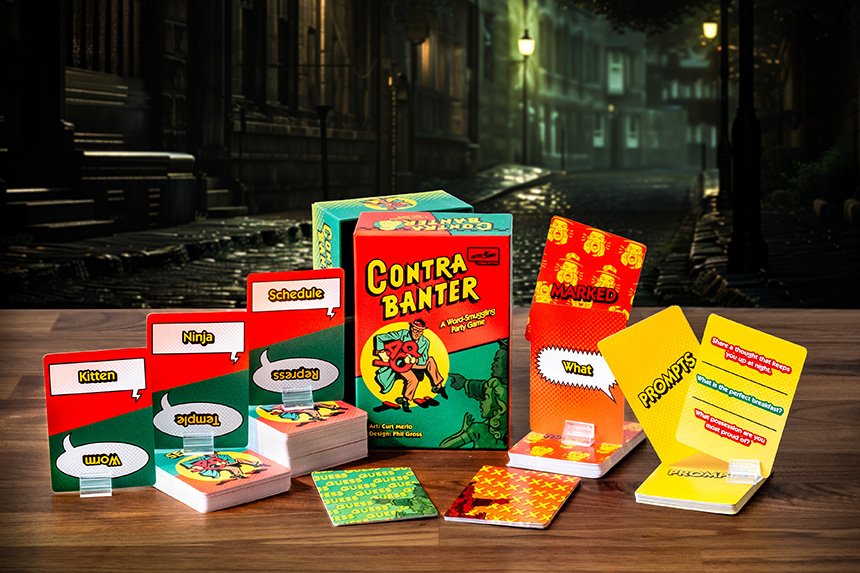
How did you come to collaborate with Skybound on the game?
It was a really neat Iittle incident. I was at PAX Unplugged. This was back in 22. I had been just playtesting Contrabanterwith the public, and [Skybound’s Senior Tabletop Designer] Ben Kepner was seated across from me. I had no idea who he was. I didn’t know that he was working for a publisher or scouting or anything. He must have sat there for a good half hour, just watching people play. Then he asked me a few questions and introduced himself, and we kicked it off from there. He had very good, insightful questions, and, of course, that’s led to really good development. Over the last year, Ben and his team have done really great work helping me with getting the vision to where it should be for the right audience, keeping the gameplay simple, while still keeping the core premise intact. So it’s been a really good experience.
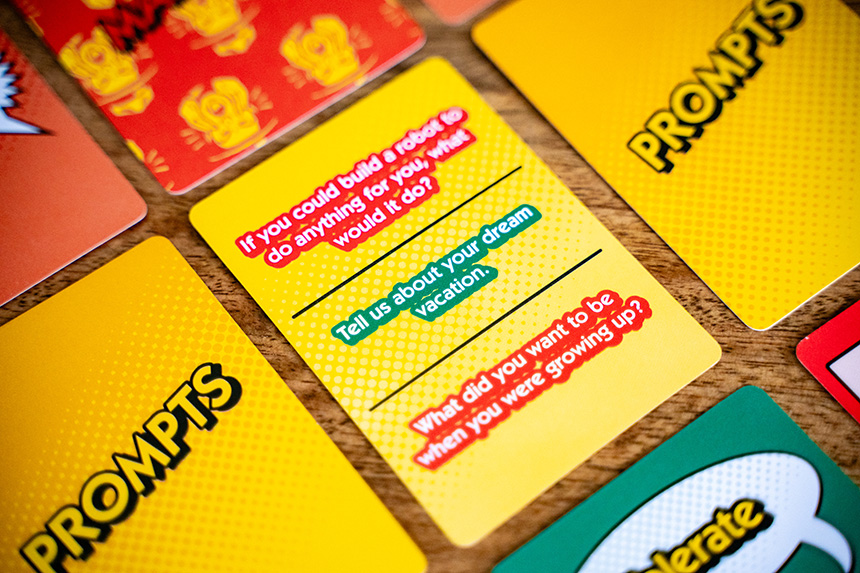
What were some of the challenges you faced in developing Contrabanter?
This is my first published game. I had dabbled in game design before, and after this, I’ve been headfirst into it for the last two or three years. So a lot of the challenges I faced were familiar to any amateur. That would be things like having an inkling of an idea of where the project needed to go but resisting testing it quickly. With game design, everything boils down to testing, testing, testing. You only really learn about how your game works and why it works by getting in there with people. Not only that, but you also need to change it in the right way. There were some things that seem obvious in hindsight. For a while, I had the game as individual multiplaye; there were no teams. The only reason I didn’t test teams was because I thought, “Codenames did that, and I don’t want to copy Codenames.” Which was very foolish, right? There are plenty of good team-based party games. In fact, it’s funny, just in the last year, I was reading a book about party game design from the 1950s, and one of the first heuristics this author mentions is you should use teams as often as possible.
So, yeah, simple things like that were challenges. The core design stayed the same throughout the whole thing. The premise is exactly as it was at the beginning. There’s a really cool rule that has stayed the same from the outset.
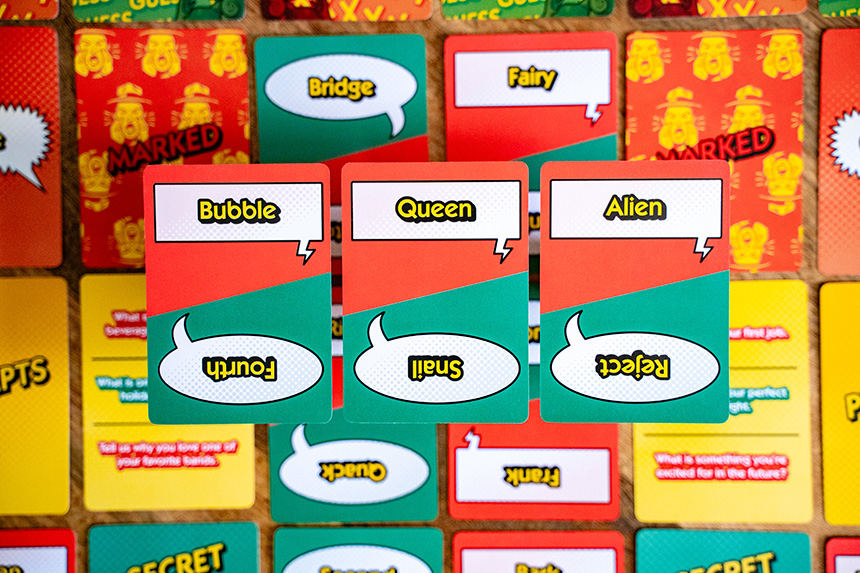
Which rule is that?
I’m proud of this. It’s the one true innovation in the design for Contrabanter… When you’re hiding the words in the conversation, it’s the whole sound of the word that counts. As long as you can hear the hidden word, it counts. The example I always give when I teach the game is – if there’s a group of nerds at the table [laughs], I’ll say, “What’s the greatest Star Trek movie?” If my word is “con,” it’s in The Wrath of Khan. Also, I would have accepted First Contact.
So there’s a lot of strategy in the game too. Which is pretty neat. I mean, you can just have a laugh, a good old time. And while doing so you can sort of feel, “Oh, yeah, I can get better at this.” Which is a goal for any of my designs, that they would have some teeth like that.
Going back to the game’s development with Skybound, with Ben’s team… The changes were primarily structural, like endgame scoring, that sort of thing. The changes are good the way they are now, but it’s interesting… The other challenge was due to the fact that the game was working so well from the outset, from the very first test. It’s easy in that case to have blinders on, to think, “Oh, this is going so great. Why should I change it?” That’s another thing that I learned.
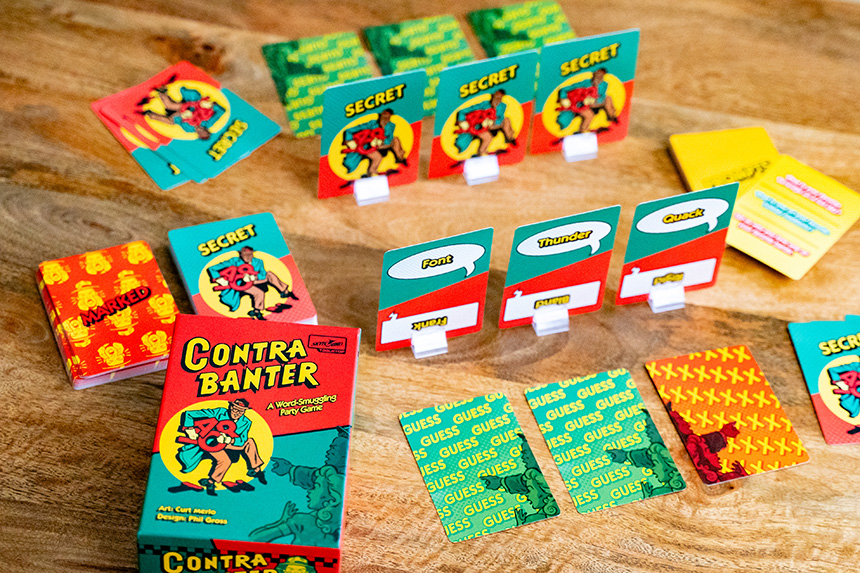
Can you take us through some of the nuts and bolts of the game?
Yeah. The game plays in about a half hour. If you’re going to play with three teams, then you want to extend that to about 45 minutes. The box, I believe, says 2 to 15 players. So if you go with fewer players, then you’ll have one-person teams. My favorite number to play with is anywhere from like, 4 to 6, maybe 8 players. But that’s my personality. The game holds up beyond or beneath that.
There’s this aspect where you’re trying to hide the words. It’s all in regular conversation. So we could be playing right now – as part of this interview – and have secret words in front of us, and it would still be part of the game. So the sort of unintended consequence of the design that I really embraced is that you’re gonna have great conversations. The conversations I’ve been part of and witnessed, just watching people play people I’ve never met before, are just delightful. It’s lovely to sit around and talk and make each other laugh. To some gamers, that may not sound like something they want to do during a game. But for me, if I can trick you into enjoying this really fun, social bluffing/deduction experience in which you become better friends or have gotten closer with your family along the way, that’s a pretty cool accomplishment. That, to me, is the dream for the game, and I’ve seen it accomplished many times over in the testing.
For exclusive Skybound coverage and rewards, join Skybound Insiders now. Free to join!




